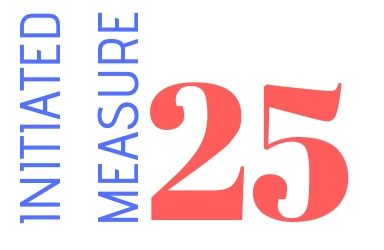Conflicting viewpoints: IM 25

Initiated Measure 25 was voted on on Nov. 6 and did not pass.
October 22, 2018
IM 25: to some, a blank check to government officials, and to others, a sorely needed allocation to Sioux Falls’ Vocational Schools. Which is it? Jason Glodt, the head of South Dakotans Against Higher Taxes, and Mark Mickelson, the man who proposed IM 25, debate on three key points.
1. Does IM 25 have sufficient regulation to prevent fiscal abuse?
Glodt thinks that it is very possible for the money from IM 25 to be abused. There is no way of preventing the legislators of the bill from diverting the money to the general fund, where it can be used for anything. In this case, it would truly become a blank check. The video lottery bill passed in the past, according to Glodt, is a prime example of this.
“Years back, people were told that ‘If you support video lotteries, that money’s going to be dedicated to education,’ and that never happened. This is another example of claiming money is going to be dedicated to something to get something passed, and there’s no guarantee that will actually happen, and that money wouldn’t be diverted,” said Glodt.
On the contrary, Mickelson doesn’t think this money won’t be abused or diverted. According to Mickelson, the video lottery was completely different from this.
“There’s an important difference, so no, I don’t think it [the funds] will [be diverted to the general fund]. The video lottery provision was never written in a way that actually did dedicate the money to education, they just advertised it that way to get it more support, and that’s unfortunate,” said Mickelson.
Also, Mickelson cites past bills of a similar matter whose funds have not been diverted.
“We did have a tobacco tax increase about 10 years ago, and that raised about $30 million. That money is being followed. That $30 million is being spent as its sponsors wanted it to be spent, so we actually have a history of following what the sponsors want on a tobacco tax increase,” said Glodt
2. Are Technical Schools in South Dakota the most pressing educational need?
Glodt feels as if IM 25 is focusing on a very small group, and that some of the money needs to go towards K-12 and university education.
“We have about 6,500 students that go to our VoTechs [vocational and technical schools], and they’ve had increasing enrollment for about a decade now, but there are about 133,000 students in our K-12 system that get no benefit from this, and there’s another 36,000 students in our university system that are shut out also, so it really targets a small group of people,” said Glodt.
On the other hand, Technical Schools have very high tuition, and Mickelson thinks that a lower tuition would attract more students.
“[IM 25] is an investment to an important area of our education, our four technical schools, and it will make workforce training more available to employers. It should keep young people here in South Dakota to go to school, and it should attract students from other states to go to school here. We have a very competitive tuition at our four-year universities. A third of the student body comes from out of state, so our out of state tuition is very attractive at our four-year schools, but we have almost no out of state students at our technical schools, because it costs twice as much to come to South Dakota for our two year schools,” said Mickelson.
3. Is IM 25 going to hurt small businesses?
According to Glodt, IM 25 will certainly hurt small businesses by pushing business out of our state.
“We would have one of the highest tobacco taxes in the nation, and that would push a lot of businesses out of our state. South Dakota would be $2.50 per pack just for tax. In areas like Sioux Falls and Larchwood, right across the border their tobacco taxes are $1.36, so we would be about $1.20 higher, so that’s getting up to $12, $15 savings per carton of cigarettes, and that’s a pretty good incentive for consumers to leave our state to do business.”
Mickelson says that IM 25 will only hurt large tobacco corporations.
“The biggest objection comes from the people who make the cigarettes. They’re funding the advertising you see, Phillips Morris and R.J. Reynolds are about all the money in this, because the more cigarettes they sell, the better their business. I understand that, I think it’s unfortunate, and we’ll spend some money on our advertising, telling people that ‘Listen, what they’re really telling you is that we make money by selling cigarettes, and if this passes we sell less, so don’t vote for it.’ That’s fair. Let’s make that the issue then,” said Mickelson.
In addition, Mickelson says that IM 25 will actually help small businesses by providing an influx of technical workers.
“IM 25 should help most small businesses. The biggest issue most small businesses face in this state is finding a good, qualified employee, and by bringing down the tuition at our technical schools, we’ll make finding available employees easier. We’ll be growing the number of people in our technical schools,” said Mickelson.







